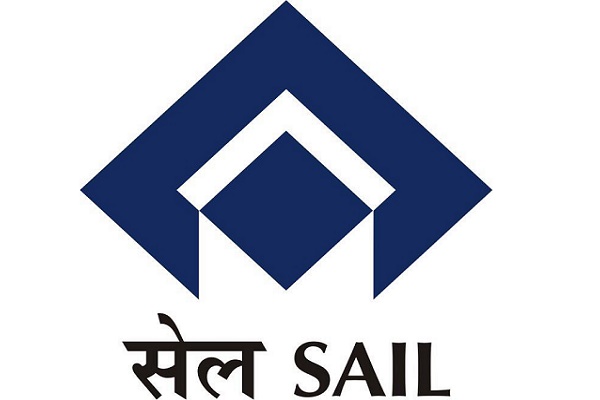Unicommerce eSolutions coming with IPO to raise Rs 276.57 crore

-
Unicommerce eSolutions
- Unicommerce eSolutions is coming out with a 100% book building; initial public offering (IPO) of 2,56,08,512 shares of Rs 1 each in a price band Rs 102- 108 per equity share.
- Not less than 75% of the issue will be allocated to Qualified Institutional Buyers (QIBs), including 5% to the mutual funds. Further, not less than 15% of the issue will be available for the non-institutional bidders and the remaining 10% for the retail investors.
- The issue will open for subscription on August 6, 2024 and will close on August 8, 2024.
- The shares will be listed on BSE as well as NSE.
- The face value of the share is Rs 1 and is priced 102 times of its face value on the lower side and 108 times on the higher side.
- Book running lead managers to the issue are IIFL Securities and CLSA India.
- Compliance Officer for the issue is Monish Pal.
Industry overview
The retail market in India has been largely unorganized, dominated by small shops known as ‘Kiranas’ However, these shops have several drawbacks, including limited product variety, higher prices due to a complex supply chain, low access to quality data to assess changing consumer needs, and issues with returns management. As a result, consumers are increasingly drawn to eCommerce. This shift is driven by changing consumer behaviour, with consumers seeking greater choice, convenience, quality, and diverse shopping experiences. As a result, brands and sellers are opting for the omnichannel approach to maximize reach. The supply chains of these traditional brands, brand aggregators, and modern SMBs, are largely digitized, leveraging digital solutions to optimize their operations and drive business efficiency at scale. eCommerce is projected to grow more than three times as fast as the unorganized channels, at around 23% until 2027, to reach approximately $140 billion. This provides significant growth opportunities for SaaS products used by these businesses. The growth of eCommerce and expanding product categories has led to a corresponding rise in the number of shipments to approximately 4.3 billion in 2023, which is projected to be over 12 billion by 2027. Nearly 47% of all the shipments in 2023 were dropship shipments. This is projected to increase further to be nearly 65% by 2027. With the increase in product categories and order volumes, the supply chain and operations of brands and sellers become increasingly complex. To streamline the order flow and address this growing challenge, brands are turning to e-commerce enablement SaaS products. As a result, this trend is expected to drive growth for e-commerce enablement SaaS players.
The increasing demand for convenience and omnichannel experiences among consumers is driving the shift to eCommerce. However, the increasing product variety, pressures to reduce fulfilment costs, need for swift delivery times are testing the supply chain more. Brands and sellers are now faced with the challenge of ensuring timely and accurate delivery of products, while also maintaining inventory accuracy across multiple sales channels. This complexity is further compounded by the rise of omnichannel retail, which requires order fulfilment across channels and platforms. To overcome these challenges, there is a growing need for digital solutions that can streamline order placement and fulfilment across sales channels and platforms, reducing the scope for errors and increasing operational efficiency. Several leading firms across sectors such as fashion, BPC, retail, and healthcare, among others, have adopted the omnichannel approach in recent years necessitating the need for eCommerce enablement SaaS solutions. The number of e-commerce platforms (both marketplaces and D2Cs) in India are increasing steadily. As the number of platforms and product categories increases, the supply chain becomes increasingly complex and the need for efficient warehousing solutions becomes critical.
Pros and strengths
Largest e-commerce enablement SaaS products platform: The company is India’s largest e-commerce enablement Software-as-a-Service (SaaS) platform in the transaction processing or nerve centre layer, in terms of revenue for the financial years ended March 31, 2023, March 31, 2022 and March 31, 2021, that enables end-to-end management of e-commerce operations for brands, sellers and logistics service provider firms. It is also the only profitable company among the top five players in the industry in India during Fiscal 2023. For the quarter ended March 31, 2024, it had an annual run-rate33 of processing 791.63 million order items for 795 enterprise clients and 2,707 SMB clients. Since inception, a goal central to its business operations has been to provide its clients with the software features and functionality they need for operating their e-commerce operations effectively, while at the same time reducing the risks associated with increasing complexity that comes with scale, which in turn helps it retain clients and generate goodwill to be recognized as a leading service provider in the industry. It has a large, base of enterprise clients which are already using its products. Its ability to create efficiency gains for its clients, including providing better inventory and returns management, has led to steady client retention and profitability, enabling it to act as the nerve centre that manages the post purchase ecommerce operations of its clients. Its capabilities have also allowed it to be an essential consideration for various types and categories of clients when evaluating market solutions, leading to better sales efficiency for it.
Comprehensive and modular suite of products: The company’s products and plug-and-play integrations help businesses of all sizes, selling both online and offline, to complete their entire day-to-day fulfilment operations efficiently through technology and automation. Some of the major challenges faced by ecommerce businesses and retailers include management of inventory across multiple locations, minimising fulfilment costs, order processing from multiple online and offline channels, management of returns, generation of correct invoices, taxation and other regulatory compliances. Its products and plug-and-play integrations offer an easy and effective solution to such challenges and benefit clients by providing, among other things, a central view of the inventory, real-time allocation and routing of orders across facilities and stores, reduction in fulfilment / dispatch errors and stock-outs, reduced operational glitches, enhanced delivery turnaround, lower return rates, minimised pilferage and wastage, and ease in taxation and regulatory compliances. Its products act as an integrated technology stack for its clients, enabling end-to-end e-commerce operations and act as a nerve centre for management of all e-commerce data including sales, inventory, returns, procurement management, invoice management and logistics management.
Large, growing and diversified base of marquee Indian and global clients: The company has been able to create a large and consistently growing base of valuable clients across the retail and e-commerce landscape in India as well as in international geographies. Its clients include D2C brands, brand aggregator firms, traditionally offline brands, e-commerce retailers, marketplaces, third-party logistics and fulfilment players and SMBs. Its clients belong to various sectors including fashion (apparel, footwear, accessories), electronics, home and kitchen, FMCG, beauty and personal care, sports and fitness, nutrition, health and pharma as well as third-party logistics and warehousing. It delivered an NRR of more than 100% consistently in the past financial periods indicating growth of its revenue from its existing enterprise clients as their transactions and business grow on its platform. It has also seen a steady pace of client acquisitions in India through various sales and business activities that include its flagship events “SARAL”, “The Marketplace Conclave”, and small events “e-Kumbh” and “DECODE”. It also has good traction in international markets in South-East Asia and the Middle East, owing largely to its product being comprehensive, flexible and quickly adaptable to international geographies, as well as to its association with clients in various industry verticals.
Proprietary technology platform built for scalability: The company’s products and its plug-and-play integrations operate on a proprietary technology platform that is built to service client needs across different scale of operations in terms of the number of SKUs, facilities, size, locations, hours of operations, complexity of client’s supply chains, and the variation of processes across the type of business and industries. Its clients belong to various sectors including fashion (apparel, footwear, accessories), electronics, home and kitchen, FMCG, beauty and personal care, sports and fitness, nutrition, health and pharma as well as third-party logistics and warehousing. Its clients can use one or more services at a time based on their needs, including the use of certain select sub-modules. It keeps in consideration the need to provide multi-fold scalability over a period of time as it processes more orders and data with the growth of its client base. Given the critical role that its platform plays in the daily operations of its clients’ businesses, it needs to ensure high up-time of its platform, universal and easy access of its products and rapid scalability in addition to the modular product suite, its maintenance and upgradation as an underlying promise to the clients.
Risks and concerns
Depend on dropship volumes of clients: The company’s business and growth is highly correlated with the viability and prospects of the e-commerce industry in India. In particular, a portion of its e-commerce business is dependent on the dropship volumes of its clients. An e-commerce business has three main models, i.e., outright purchase, fulfilment of orders by e-commerce platform itself and dropship volumes. A dropship shipment refers to an order item that is processed by the warehouse or any other location of an eCommerce business or its outsourced logistics partners. Dropship shipments exclude any order items that are processed by the warehouse of a marketplace using services from their own logistics partners. While the number and share of dropship shipments in the total e-commerce shipments have increased in the past, it cannot assure that such increase in the number and share of dropship shipments will continue to occur in the future. In the recent times, it has seen that e-commerce companies generally prefer to partner with companies like it for SaaS products and services due to the high cost of on-premise solutions, operational inefficiencies and difficulty associated with the development of in-house expertise.
Business is subject to seasonality: The company experiences seasonality in its business, mainly reflecting the seasonality patterns associated with e-commerce, as well as holidays and festive periods in India. When e-commerce marketplaces hold special promotional campaigns, it typically observes peaks in its services volume following these campaigns such that the third quarter of a fiscal year has historically been its largest quarter by volume in its business. It has an extensive suite of technology and partner integrations, which till March 31, 2024, comprises 131 Marketplace and WebStore integrations, 101 logistics partner integrations and 11 ERPs, POS and other system integrations. With these integrations, it acts as the nerve centre that manages the post purchase e-commerce operations of its clients and become an integral part of their ecommerce technology stack for clients, assuming responsibility for driving automation and enabling efficient operations. Its business, results of operations, financial condition, and cash flows for future periods may fluctuate from time to time due to seasonality. Seasonality also makes it challenging to forecast demand for its services, as volumes can vary significantly and unexpectedly.
Rely on third party service providers and vendors: The company currently relies on a variety of third-party service providers and key vendors for running its platform and certain operational services relating to its business, including third-party computer systems, software and service providers, such as payment processors and gateways, cloud computing service providers and customer relationship management technology providers, marketing partners and online marketplaces. In particular, it relies on third parties to assist in process payments, provide computer infrastructure critical to its business, and provide customer relationship management, or CRM services. These third parties are subject to general business risks, including system downtime, hacker attack, fraudulent and unauthorized access, natural disasters, human error or other causes leading to unexpected business interruptions. In the event of any disruptions from such third-party vendors, its operations may be adversely impacted. While there have been no such material instances in the past, however such instances may happen in the future which may have a material adverse impact on its financial and operational performance. If they fail to perform adequately, experience difficulty meeting its requirements for quality and customer service standards or fail to comply with Applicable Laws, rules and regulations in India, and it is unable to locate alternate third-party service providers or vendors as required, its brand and reputation could also suffer, it may be exposed to liability on their account, and its business, financial condition, cash flows and results of operations may be adversely affected.
Rely on telecommunications and information technology systems: The company’s business could be impacted by the failure of telecommunications network operators to provide it with the requisite bandwidth which could also interfere with the speed and availability of its platform, as well as by breakdowns at the level of its internet service providers. It does not use multiple service providers for any third-party services for operating its platforms or providing its products and services. Additionally, systems, app components and software that are developed internally may contain undetected errors, defects or bugs, which it may not be able to detect and repair in time, in a cost-effective manner or at all. In such circumstances, it may be liable for all or some costs and damages, as it would not be entitled to any indemnification or warranty that may have been available if it had obtained such systems or software from third-party providers. While it has put in place requisite disaster management protocols, any disruptions or instabilities in telecommunications networks, its platforms, servers and databases as well as the functioning of internet service providers could lead to dissatisfaction and damage its reputation.
Outlook
Incorporated in 2012, Unicommerce eSolutions is India’s largest e-commerce enablement SaaS platform in transaction processing in terms of revenue for the financial year ended March 31, 2022, that enables end-to-end management of e-commerce operations for brands, sellers and logistics service provider firms. Its comprehensive suite of SaaS products acts as the nerve center for e-commerce fulfillment operations for businesses and allows them to manage inventory across multiple locations, minimize fulfillment costs, process orders for multiple online and offline channels, manage returns, generate correct invoices, reconcile order payments, shipment tracking for customers, taxation and other regulatory compliances. Its product suite is sector and size-agnostic and designed to meet the business needs of various types and sizes of retail and e-commerce enterprises, both online and offline. Its products aid in streamlining e-commerce operations for its clients and enable it to become a critical part of the supply chain stack of its clients. It enables businesses to efficiently manage their entire journey of post-purchase e-commerce operations through a comprehensive product suite that includes the warehouse and inventory management system, the multi-channel order management system, the omni-channel retail management system, the seller management panel for marketplaces and the recently introduced UniShip and UniReco. On the concern side, the company is required to obtain certain approvals, registrations, permissions and licenses from regulatory authorities to carry out/ undertake its operations. These approvals, licenses, registrations and permissions may be subject to numerous conditions, and it cannot assure that it will be able to continuously meet such conditions. Besides, its products are complex and may be deployed in a wide variety of network environments. Implementing its products can be a complex process at times. Inability to meet the requirements of its clients may result in client dissatisfaction and/or damage to its reputation, which could materially harm its business.
The company is coming out with a maiden IPO of 2,56,08,512 equity shares of Rs 1 each. The issue has been offered in a price band of Rs 102-108 per equity share. The aggregate size of the offer is around Rs 261.21 crore to Rs 276.57 crore based on lower and upper price band respectively. On performance front, the company’s total income increased by Rs 164.64 million, or 17.71% to Rs 1,094.34 million for the Fiscal 2024 from Rs 929.70 million for the Fiscal 2023. The company’s restated profit for the year increased by 101.94% to Rs 130.78 million for the Fiscal 2024 from Rs 64.76 million for the Fiscal 2023. Meanwhile, the company aims to continue growing its operations in India by adding new enterprise clients and SMB clients, as well as increasing revenue from its existing clients with whom it has established recurring relationships. It seeks to increase the relevance of its products to its existing clients by keeping up with client needs. Its platform is agile enough to create new features to address client issues. It further intends to introduce various product enhancements that will offer value to existing clients as well as enable it to generate additional revenues as the business of its clients grows and will enable it to increase cross-selling and upselling.
Profile of the company
The company is an e-commerce enablement Software-as-a-Service (SaaS) platform in the transaction processing or nerve centre layer. It enables end-to-end management of e-commerce operations for brands, sellers and logistics service provider firms. The company enables its enterprise clients and small and medium business (SMB) clients to efficiently manage their entire journey of post-purchase e-commerce operations through a comprehensive suite of SaaS products that include (i) the warehouse and inventory management system (WMS); (ii) the multi-channel order management system (OMS); (iii) the omni-channel retail management system (Omni-RMS); (iv) seller management panel for marketplaces, housed in its platform, Uniware; (v) recently introduced post-order services related to logistics tracking and courier allocation (UniShip); and (vi) payment reconciliation (UniReco). Additionally, it offers several sub-modules that its customers may use as a part of their routine operations. Its products act as the nerve centre for e-commerce fulfilment operations of its clients, ensuring that the orders received from its clients’ end customers are processed correctly, efficiently and within timelines as per client needs. Its products aid in streamlining e-commerce operations for its clients and enables it to become a critical part of the supply chain stack of its clients.
The company’s products are designed and regularly updated to meet these challenges and the business needs of various types and sizes of retail enterprises, both online and offline. It provides a modular suite of products with features developed over years for a variety of uses across industries, including inter alia, inventory management and visibility, management of orders across channels, timely order fulfilment and minimised cancellations, procurement and vendor management and returns management. Its products are sector and size-agnostic and are designed to meet the business needs of various types and sizes of retail and e-commerce enterprises, both online and offline. Its products are configurable as per client needs, and its clients can use one or more products at a time depending on their needs and configure them to suit their specific workflows. It also has several additional sub-modules, which form part of its SaaS products, that clients can utilize for their business operations including procurement management, invoice management and logistics management. Clients prefer to use a SaaS solution like the company’s which can continue to develop the technology as per changing market needs and add emerging integrations relevant to their business while they can focus on their business. The company’s products also enable plug-and-play integrations that seamlessly connect other critical components of a client’s supply chain stack, such as their own apps/websites, marketplaces, logistics service providers, point of sales systems and financial/ERP systems for automated data exchange and for exchanging critical operating instructions with sales systems and financial/ERP systems of its clients to enable end-to-end automation.
Proceed is being used for:
Carrying out the Offer for Sale of up to 25,608,512 Equity Shares of face value of Rs 1 each by the Selling Shareholders. Achieving the benefits of listing the Equity Shares on the Stock Exchanges.
























